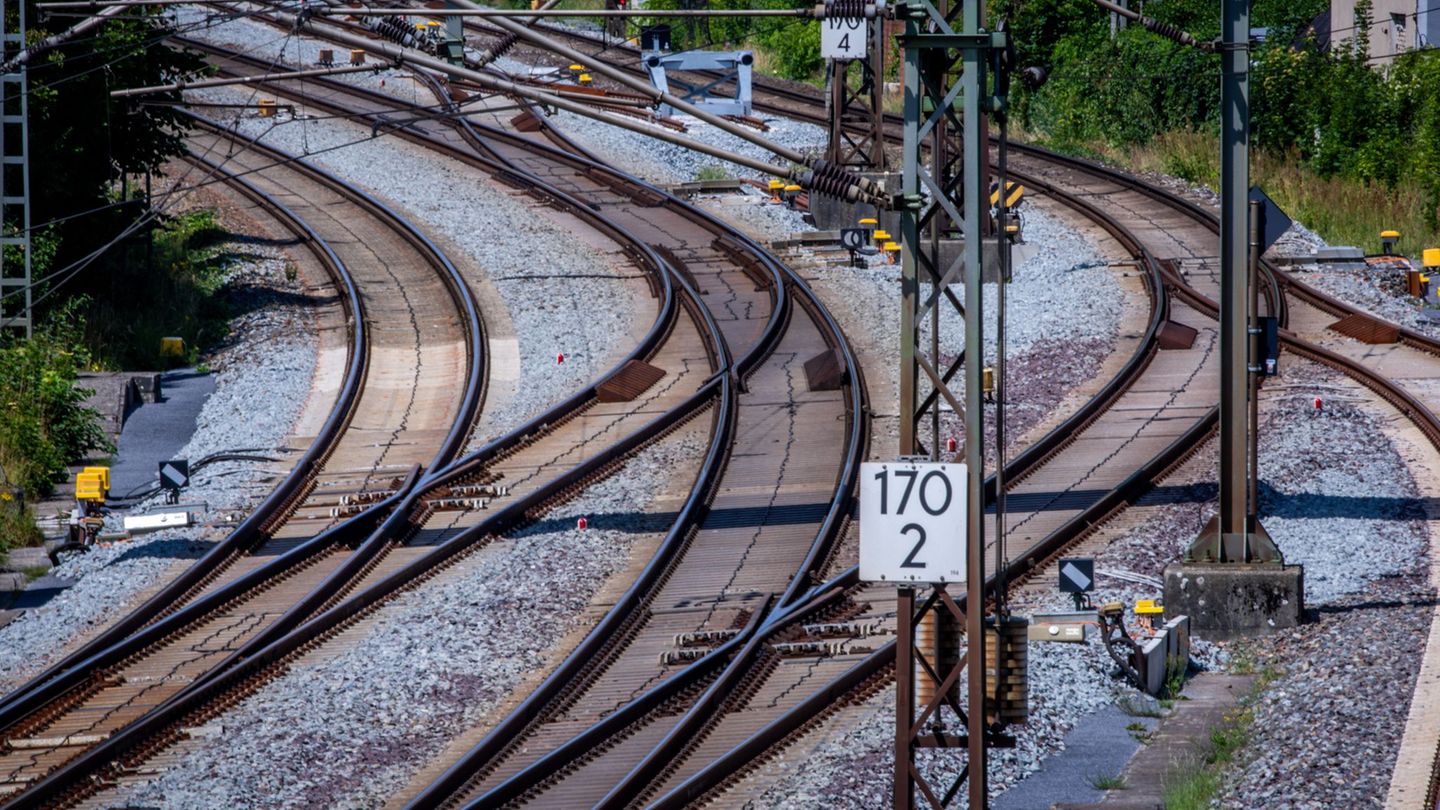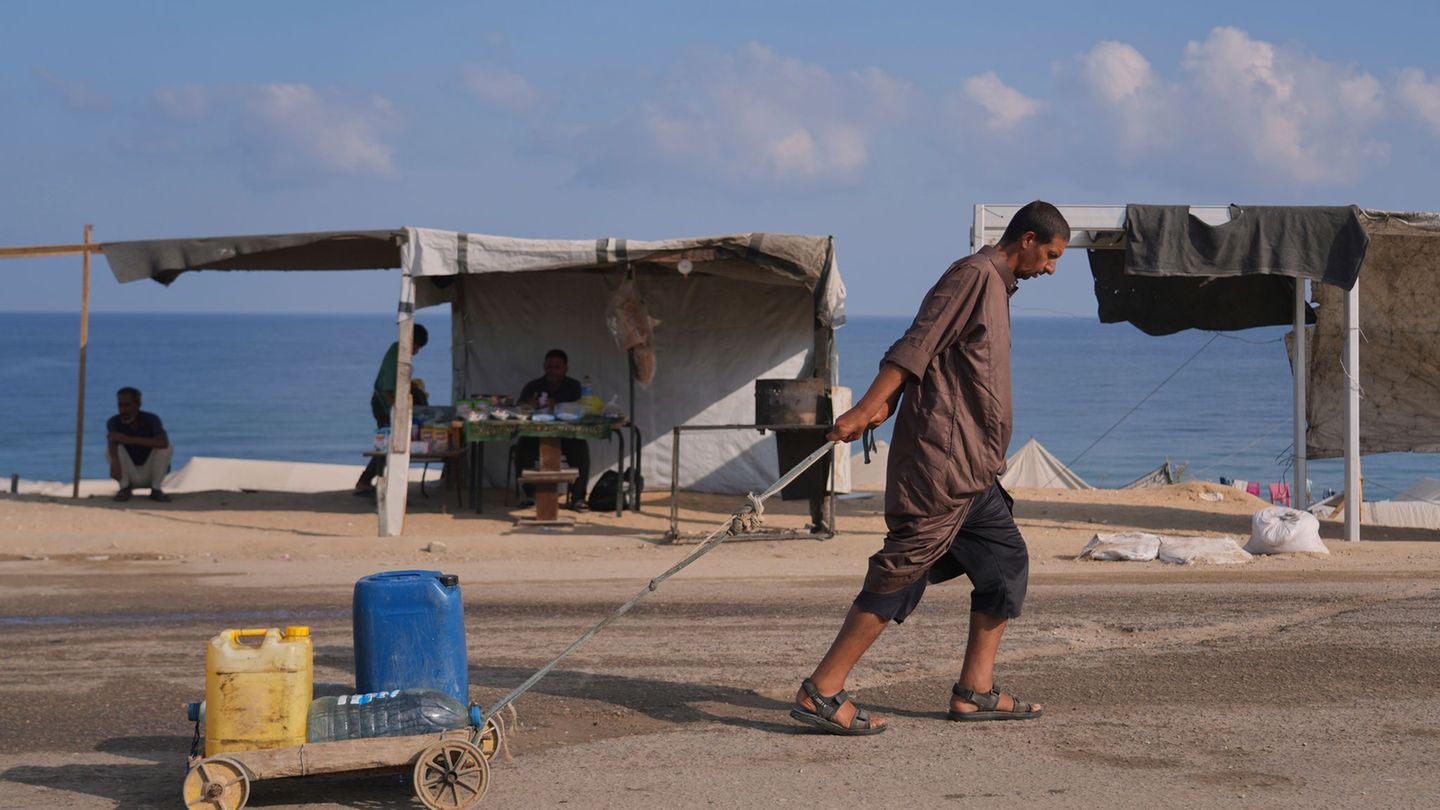Public transport
Stalled transport transition: states are examining cuts in public transport
Copy the current link
Bus and train travel is becoming more expensive. But rising prices and more funding from the federal government are no longer sufficient to finance the offer in many places. Some countries are therefore planning reductions.
More and more people are taking local and regional buses and trains – but instead of expanding this, some countries are currently considering reducing the number of services due to a lack of funds. In some places this is already a done deal. In Schleswig-Holstein, for example, when the timetable changes in December, numerous regional train lines will no longer have booster trains and connections during off-peak times and on weekends.
“The cancellations – even if they only affect off-peak times and less than 1.5 percent of all connections in the country – remain painful and are certainly not the signal we want to send,” said State Transport Minister Claus Ruhe Madsen (CDU) in August.
Association: There is also a threat of cancellations elsewhere
Reductions in rail services are also becoming more concrete in other countries. “Lower Saxony has announced an examination and, as far as we know, cancellations are also imminent in Baden-Württemberg and North Rhine-Westphalia,” said the Association of German Transport Companies (VDV) upon request. The plans relate to the coming year, i.e. the timetable change in December 2025.
“It’s not just about cancellations of services that are already running, but also about additional orders that can no longer be financed,” explained the VDV. So it’s also about booster trains that were already planned because of the high passenger growth, “but were still calculated on a cost basis that can no longer be realized given the extremely increased costs.”
Revenues do not cover the cost increases
The reason for the reduction is the same everywhere: there is a lack of money to cover the increasing costs of operations. According to the association, personnel costs for companies rose by around 13 percent between 2019 and 2021, and material costs for repairs and maintenance, but also for operating materials and energy, rose by almost 40 percent. Since then, inflation has fallen again. But the costs remain high.
The states are responsible for regional rail transport. It is financed from the income from ticket sales and from the federal government through the so-called regionalization funds. Last year alone, these federal funds, including special payments, amounted to around 12.4 billion euros.
This pot is expected to grow by three percent per year for the countries until 2031. “But the actual cost increases are significantly higher,” said the VDV. From the industry’s perspective, regionalization funding would have to increase by around three billion euros every year just to secure the existing offering. Federal budget negotiations are currently underway again, including on this issue.
Demand has risen sharply – public transport often reaches its limits
Countries and the industry have been demanding adequate financing for a long time. On the one hand, the sector is a supporting pillar for the transport transition and thus for the federal government’s climate goals. On the other hand, demand has risen sharply again since the slump in the Corona crisis. This is mainly due to the Germany ticket.
In the first half of the year alone, around 5.6 billion people traveled on local and regional buses and trains, as the Federal Statistical Office announced a few weeks ago. That was around six percent more than in the same period last year. By 2023, the increase compared to the previous year was eight percent.
The high demand often pushes public transport to its capacity limits and beyond on busy weekends. Anyone who has ever traveled to the Berlin area by train or bicycle on a sunny Saturday knows the problem. Depending on the extent, a reduction in supply would further aggravate the situation.
Tickets will be more expensive again in many places next year
The federal states are currently making do with higher fares. In the coming year, buses and trains will become more expensive again in many places. An average increase in ticket prices of around 7.5 percent was recently announced in Berlin and Brandenburg. Bremen, Munich and the major NRW transport associations have also already announced price increases from January.
“The cancellation scenarios are currently being covered up by a return of funds from the transport companies in local rail passenger transport to the responsible authorities from the contractual penalties,” the VDV further announced. These so-called penalties are due if transport companies were unable to meet the punctuality or cancellation services agreed with the states and transport authorities.
According to the VDV, this should be in the mid three-digit million range. “This gives the authorities some buffer again and delays cancellations, but this is only a temporary phenomenon.” From this perspective, it is a matter of time before other countries have to announce supply reductions if financing is not secured sustainably.
dpa
Source: Stern




